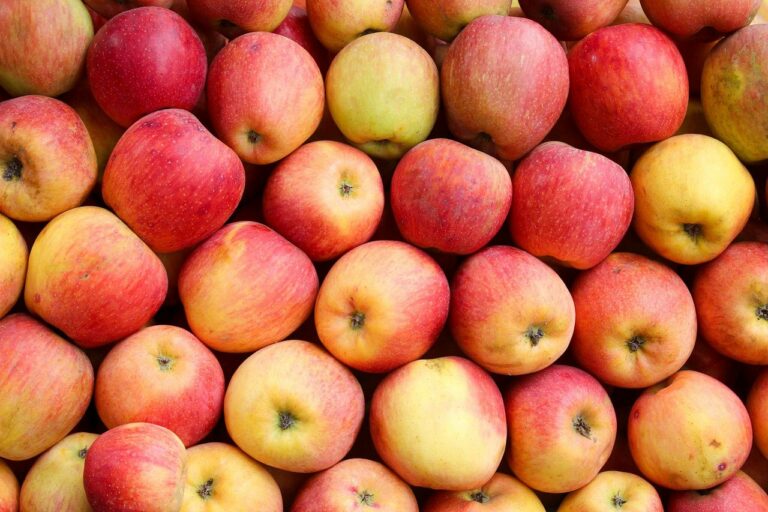Navigating Food Safety Regulations in Fast Food Restaurants
11xplay id, india24bet 24, skyfair vip login:Eating eggs has long been debated in terms of its impact on health, especially when it comes to eye health. Some studies suggest that eggs are beneficial for the eyes due to their high levels of vitamin A and lutein, while others argue that the cholesterol in eggs may have negative effects on eye health. In this article, we will explore the link between egg consumption and eye health, and whether or not including eggs in your diet can help maintain good vision.
The Role of Eggs in Eye Health
Eggs are a rich source of nutrients that are essential for maintaining good eye health. For starters, eggs contain high levels of vitamin A, which is crucial for proper vision. Vitamin A plays a key role in the function of the retina, the part of the eye that senses light and helps transmit visual information to the brain. A deficiency in vitamin A can lead to night blindness and other vision problems.
In addition to vitamin A, eggs also contain lutein and zeaxanthin, two antioxidants that are known to benefit the eyes. These antioxidants help protect the eyes from harmful blue light and reduce the risk of age-related macular degeneration, a leading cause of blindness in older adults. Including eggs in your diet can help increase the levels of lutein and zeaxanthin in your body, providing added protection for your eyes.
The Cholesterol Controversy
One of the main concerns surrounding egg consumption is its cholesterol content. Eggs are high in dietary cholesterol, which has been linked to an increased risk of heart disease. However, recent research has shown that dietary cholesterol may not have as big of an impact on blood cholesterol levels as once thought. In fact, the American Heart Association now recommends that most people can safely enjoy an egg a day as part of a healthy diet.
When it comes to eye health, the cholesterol in eggs does not appear to have any negative effects. In fact, some studies have suggested that the nutrients in eggs, such as vitamin A and lutein, may outweigh any potential risks associated with cholesterol. As with any food, moderation is key. If you have concerns about your cholesterol levels, it’s best to speak with a healthcare provider to determine the right amount of eggs for your diet.
Incorporating Eggs Into Your Diet
If you’re looking to boost your eye health by including eggs in your diet, there are plenty of delicious ways to do so. Eggs can be enjoyed in a variety of ways, from scrambled or poached for breakfast to added to salads or sandwiches for lunch or dinner. Hard-boiled eggs also make for a convenient and portable snack that can be enjoyed on the go.
For those looking to maximize the benefits of eggs for eye health, consider pairing them with other nutrient-rich foods. Leafy greens, such as spinach and kale, are also high in lutein and can further support eye health. Additionally, foods rich in omega-3 fatty acids, like salmon and walnuts, can help reduce inflammation and promote overall eye health.
FAQs
Q: How many eggs should I eat to support eye health?
A: While one egg a day is considered safe for most people, the exact amount needed to support eye health may vary depending on your overall diet and individual health needs. It’s best to speak with a healthcare provider or a registered dietitian to determine the right amount of eggs for you.
Q: Can I still enjoy eggs if I have high cholesterol?
A: In most cases, moderate egg consumption is safe for those with high cholesterol. The cholesterol in eggs may not have as big of an impact on blood cholesterol levels as once believed. However, it’s always best to consult with a healthcare provider to determine the best dietary choices for your specific health needs.
Q: Are there any other foods that can support eye health besides eggs?
A: Yes, there are plenty of other foods that can support eye health. Leafy greens, fruits, nuts, seeds, and oily fish are all rich in nutrients that are beneficial for the eyes. Including a variety of these foods in your diet can help maintain good vision and overall eye health.
In conclusion, eggs can be a valuable addition to your diet when it comes to supporting eye health. With their high levels of vitamin A, lutein, and antioxidants, eggs offer a wide range of benefits for the eyes. As with any food, moderation is key, and it’s important to consider your overall dietary needs and health goals when incorporating eggs into your meals. By enjoying eggs in combination with other nutrient-rich foods, you can help maintain good vision and support your eye health for years to come.






